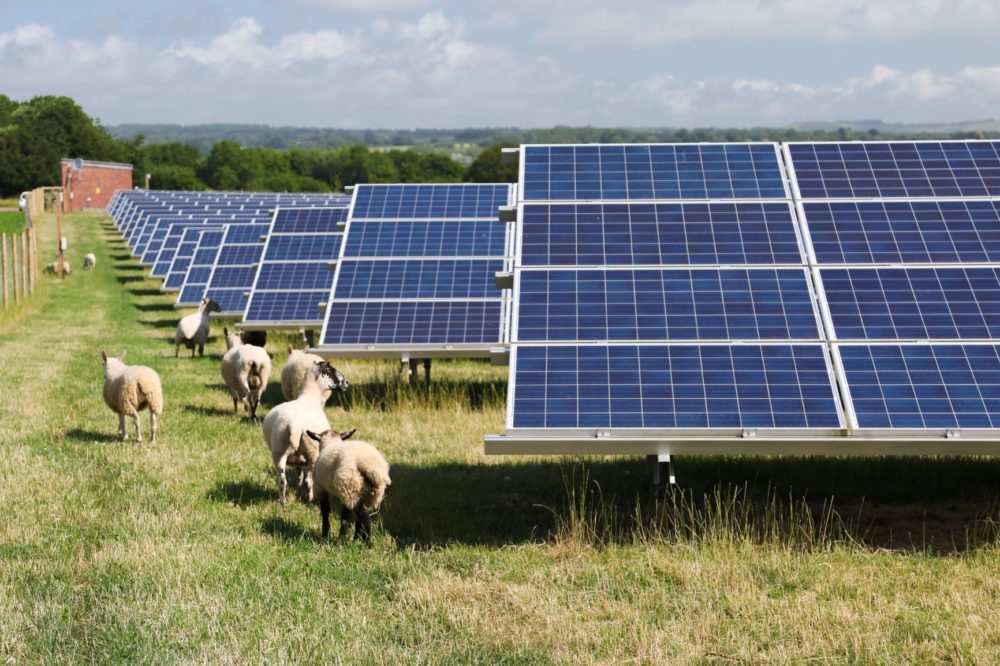Major solar farm the size of 170 football pitches moves forward

Liam Randall Local Democracy Reporter
Plans for a large solar farm covering an area the size of nearly 170 football pitches look set to be brought forward next month.
Lightsource bp, headquartered in London, wants to build solar panels on a site on the Plas Power Estate, located off Ruthin Road, Wrexham which would produce enough energy to power almost 23,000 homes.
The facility would have a capacity of 57MW and cover an area of more than 330 acres stretching from just outside Coedpoeth to near Bersham, mostly consisting of agricultural fields.
“Lower bills”
According to the company, the solar and energy storage project would help to save 15,800 tonnes of carbon emissions, equivalent to 10,800 cars being taken off the road each year.
Details of the proposals are contained within a report to Wrexham Council’s planning committee, which shows that a formal application is expected to be submitted in early June.
Due to the size of the development, it will be down to the Welsh Government to decide if the plans should go ahead.
Lightsource bp has pledged to provide a fund of £1,000 per MW capacity as part of the proposals, with the money to be distributed between Coedpoeth and Esclusham community councils.
The company said a further £400,000 will be invested in projects to benefit local communities.
Newsletter
In a newsletter to residents, the firm said: “The Plas Power Solar and Energy Storage Project will provide a source of homegrown, renewable energy, helping to reduce carbon emissions and strengthen energy security by reducing reliance on imported fossil fuel energy sources.
“Because solar power is one of the cheapest ways to generate electricity, it’ll help lower bills too.
“Lightsource bp makes sure that its projects are designed and developed to support and sustain rural businesses and protect and enhance the local environment.
“We are dedicated to supporting communities that are host to our projects, and we work closely with them to maximise the benefits and minimise any impacts.”
A report going to the local authority’s planning committee next week shows the application would be classed as a “development of national significance” under Welsh Government regulations.
The council’s chief planning officer David Fitzsimon said the proposals would therefore need to be submitted to Planning and Environment Decisions Wales to be considered by an inspector.
Outlining the process, he said: “The appointed inspector considers the applicant’s submissions, the submissions made by statutory and technical consultees and other interested parties, as well as a local impact report prepared by the local planning authority.
“Having considered all of these submissions, the inspector writes a report to the Welsh ministers setting out their conclusions and recommending whether planning permission should be granted or not.”
Committee members are being asked to delegate authority to Mr Fitzsimon to prepare and submit a local impact report on the proposals once they are brought forward.
He said this would not prevent elected members from making their own representations on the scheme.
The report will be presented to councillors when they meet on Monday (June 3, 2024).
Support our Nation today
For the price of a cup of coffee a month you can help us create an independent, not-for-profit, national news service for the people of Wales, by the people of Wales.






For those that are interested the planning documents for this development plus a link to the Bangor Battery proposal can be found here:
https://lightsourcebp.com/uk/project/plas-power/
As I have said in other comments local people and business should be able to buy into such schemes so can benefit economically from future earnings.
A large part of the site was an opencast coal site back in the 1960-70s
There are a number of schemes for this corner of Wrexham CB as they can link into the Legacy National Grid substation.
Let’s put this in perspective. 330 acres = 1.33 sq km – just a little less than Hyde Park in London (apologies for not having a Welsh comparator that will be so widely recognised). It’s a considerable area to take out of agricultural use. The Office for National Statistics estimates that there are 1.5m dwellings in Wales. If one does the arithmetic, the implication is that 87 sq km would be needed to power every home in Wales. Domestic use accounts for about a third (35%) of overall power consumption in Wales, so if all Welsh consumption were to be… Read more »